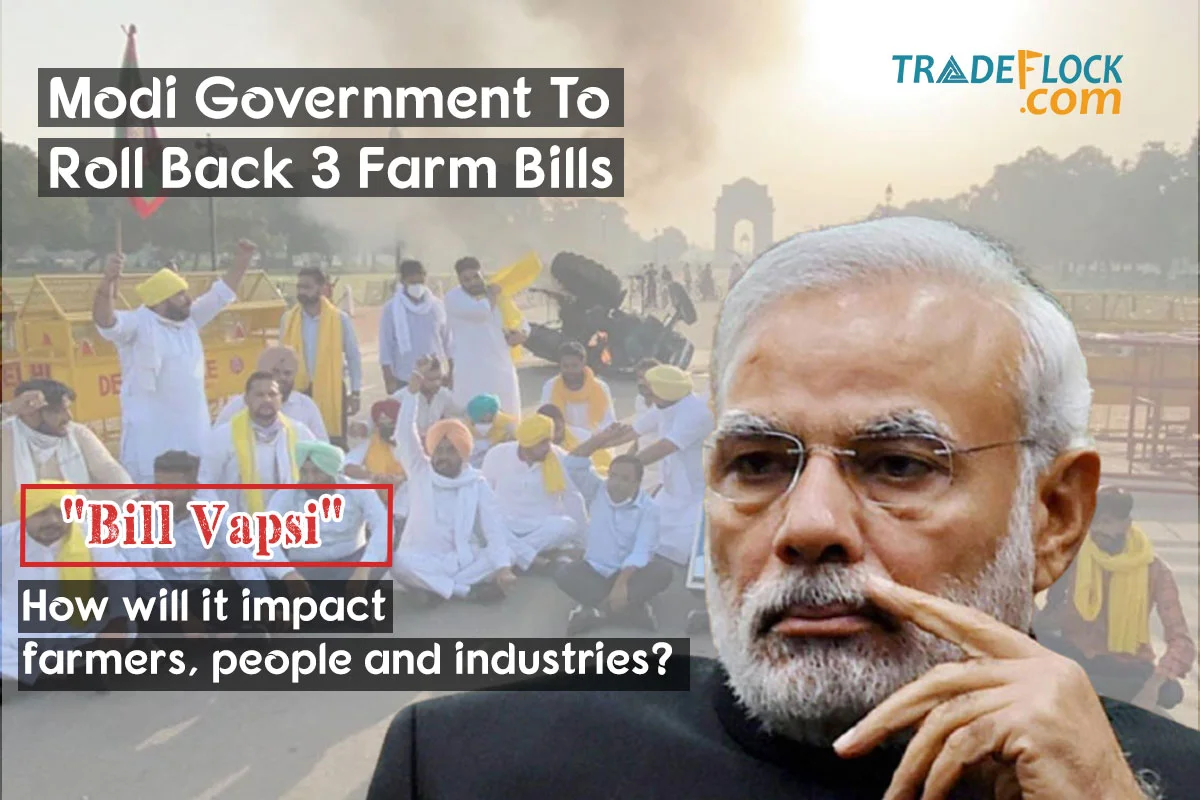Following a year of protests over farm legislation, Prime Minister Narendra Modi declared that the Centre would repeal the three controversial laws. PM Modi apologised and admitted that the administration had failed to persuade certain farmers about agriculture rules. During this month’s Parliament session, he declared, the three controversial laws will be eliminated.
While addressing the nation on Friday, PM Modi said, “I apologise to India and with a true and pure heart that may be… we were not able to convince farmers [over the farm laws]. I’m here to declare that we have decided to repeal the three farm laws…We will complete all the formalities during the Parliament session that begins this month“.
The announcement comes just days before state elections in Punjab and Uttar Pradesh, where farm protests were expected to hurt the BJP’s political prospects. Because the three agriculture laws have already been signed into law, the government will have to introduce three new bills in both houses to repeal them.
The three farm laws, Farmers’ Produce Trade and Commerce (Promotion and Facilitation) Act, 2020; Essential Commodities (Amendment) Act, 2020; and Farmers (Empowerment and Protection) Agreement on Price Assurance and Farm Services Act, 2020 — have divided the country, resulting in farmer-led protests across the country for more than a year.
Repealing the farm laws will undoubtedly affect the farmers’ growth, tiny scale farmers, as they will still don’t have access to a direct marketplace where they can sell their products directly and get high-price in return. These laws that promote contract farming by corporations imply that the corporation will provide technology to the farmers to improve their yield, but this wouldn’t happen now. Neither the farmer will increase yield through technology and nor the corporates can get higher production from suppliers. Consequently, the people wouldn’t have access to considerably cost-efficient products.
Approximately 600 farmers have already perished as a result of the protests. It is vital to emphasise that no organisation was calling for the laws to be implemented. The government was not under any obligation to implement the legislation. It simply put the laws on hold and was ignoring the protests, waiting for them to fade away due to weariness or something else. The government could not persuade and convince all farmers that the regulations were in their best interests. It is an apparent failure of a ruling party with over 180 million members and a vast network spread in pan India. They were unable to make farmers understand and convince in favour of agriculture reforms.
Following the Farm Laws implementation, the government had invested an enormous amount of money for the advancement of Mandis, armed and paramilitary forces were deployed to tackle the protesters’ aggression, a lot of people have lost their lives. Hundreds of people were hurt and one demonstrator was killed during the skirmishes with police.
Last month, eight more people were killed amid protests in Uttar Pradesh, BJP seeks to regain power in early next year’s assembly elections.





